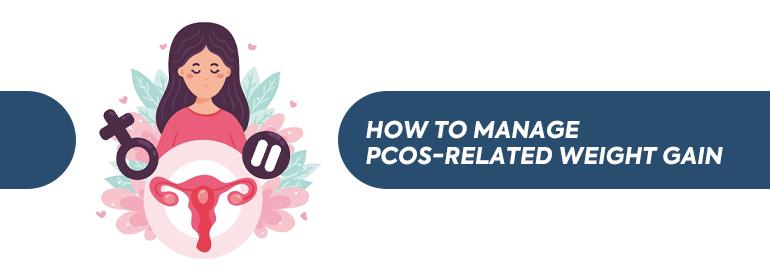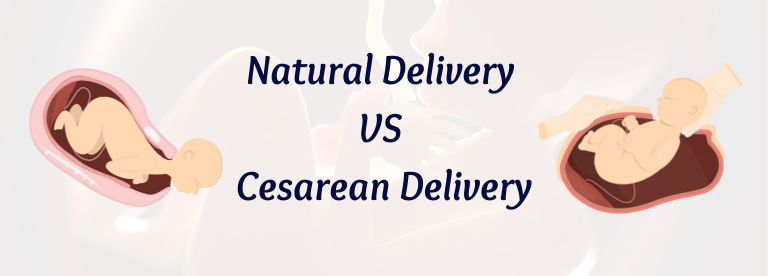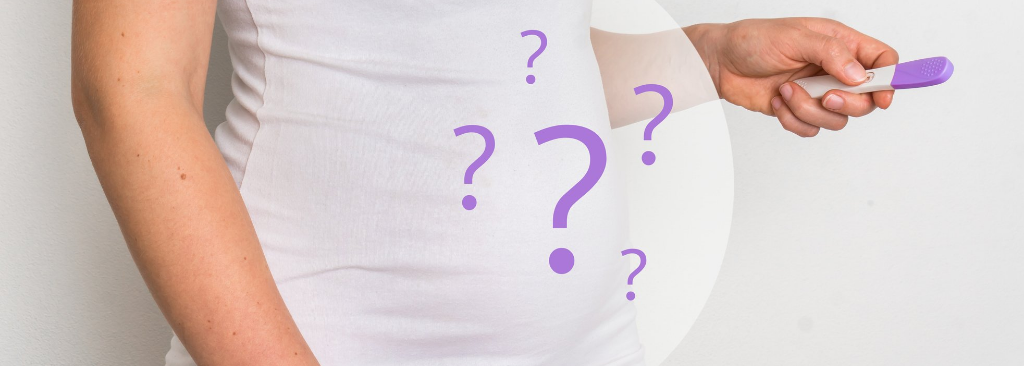About Our Hospital
Harsha Hospital is a hospital that understands and meets all the health needs of a woman and fosters the understanding of how advanced healthcare can improve the lives of women and their families. We at Harsha Hospital aim to provide total Gyneac under one roof. From adolescence to menopause with the most advanced technology at an affordable cost. We remain focused on how to achieve maximum patient satisfaction and to become the first choice for every woman. An institute par excellence, to be trusted by all patients and visitors.

Our Head
Dr. M. Neetha
Dr. M. Neetha owns and manages Harsha Hospital in the capacity of Proprietor. She is a full-time Gynaecologist and takes care of the day-to-day operations of the hospital.
Latest Blogs
Diet and Nutrition in High-Risk Pregnancy: Eating for Two, Safely
Pregnancy is a beautiful journey filled with anticipation and joy, but for some expectant mothers, it can also ...
Intrauterine Insemination (IUI) vs. IVF: Which is Right for You?
Introduction: Embarking on the path to parenthood is a deeply personal journey, often filled with excitement, anticipation, and ...
A Journey of Care: Why Harsha Hospitals Stands Out in Maternity Services
Maternity experiences encompass the physical, emotional, and social aspects of pregnancy, childbirth, and the postpartum period. These experiences ...
Antenatal Bonding: Strengthening the Connection with Your Baby
Introduction: Pregnancy is a transformative journey that brings excitement, joy, and anticipation, but it also comes with its ...
Personalized Gynaecological Care: Putting You First in Every Service
Personalized gynecological care is crucial in today's world because every woman's body and health needs are unique. By ...
PCOS and Pregnancy: Understanding the Challenges and Possibilities
Introduction: Polycystic Ovary Syndrome (PCOS) is a multifaceted endocrine disorder, that impacts millions of women globally. It poses ...
Gynecological Laparoscopy: Advancements in Minimally Invasive Women’s Health Surgery
Introduction: In the dynamic landscape of medical advancements, one area that has witnessed significant progress is gynecological surgery. ...
Essential Gynecological Insights for Women
Introduction: Women's health is a complex and integral facet of overall well-being, encompassing physical, mental, and reproductive dimensions. ...
Breastfeeding: Boosting Your Baby’s Immune System Naturally
Boosting a baby's immune system is a critical aspect of ensuring their overall health and well-being. The immune ...
Tips for Managing the Final Weeks of Pregnancy
Experiencing the miracle of pregnancy is an extraordinary journey that transcends the individual, extending its impact to encompass ...
5 Warning Signs of High Blood Sugar & How to Take Control
Elevated blood sugar is something that may catch you off guard and can be troublesome. But how do ...
Harsha Hospitals: Your Partner in Pregnancy Wellness
Introduction: Pregnancy is a remarkable journey, filled with joy, anticipation, and perhaps a touch of anxiety. It's a ...
Managing High-risk Pregnancy with Care
Pregnancy is a beautiful and transformative journey for many women and their families. While most pregnancies progress smoothly, ...
Strengthening Exercises for a Smooth Delivery
Strengthening Exercises for a Smooth Delivery: Bringing a new life into the world is a remarkable journey, and ...
From Sleep to Feeding: Establishing Routines for Baby Care
Introduction: The arrival of a newborn is a magical and transformative moment that can leave you swimming in ...
Pregnancy and Walking: A Gentle Exercise for Expecting Moms
Pregnancy is a profound and unique experience for women, marked by a rollercoaster of physical and emotional changes. ...
The Future of Women’s Health: Advancements in Gynecology
Why Women's Health Is Important? Women's health is an integral component of overall well-being and is crucial at ...
Post Pregnancy Recovery: Do’s and Don’ts’s for New Moms
Historically, the rules and customs followed after childbirth varied considerably across cultures and regions. These practices were often ...
Choosing Normal Delivery: Benefits and Considerations
Normal Delivery and Cesarean Which Is the Better Option? Generally, both methods are chosen depending on the medical ...
Fibroids and Pregnancy: Insights and Considerations
Fibroids are noncancerous uterine growths that can harm women of reproductive age. Fibroids can cause concerns and inquiries ...
Ovulation Induction for Fertility Enhancement
Understanding the Process of Ovulation Induction, What exactly is Ovulation Induction? Ovulation induction is a technique of ...
What Are the Essential Services Provided by a Maternity Hospital During Prenatal Care
Prenatal care plays a crucial role in ensuring the health and well-being of both the mother and the ...
What Are the Common Symptoms of Endometriosis?
Endometriosis is a disorder in which tissue similar to the uterine lining grows outside of the uterus. It ...
What Is Endometriosis and How Can It Be Diagnosed and Managed
Endometriosis is a condition in which tissue comparable to the uterine lining develops outside the uterus. It can ...
Menopause: Causes, Symptoms and Treatment options
Menopause is a normal biological process that occurs when a woman's reproductive years come to an end. Because ...
How to Manage PCOS-Related Weight Gain
Are you experiencing polycystic ovarian syndrome (PCOS) and are gaining weight? If yes, then it's crucial to remember ...
Benefits of Breastfeeding Insights from Maternity Hospital Experts
Breastfeeding, often known as nursing, is a healthy and lovely procedure that helps mum and baby develop closeness ...
A Guide to a Healthy Pregnancy in India
Pregnancy is a lovely process of nourishing a life within the womb. That is one of the most ...
Postpartum Recovery Tips for New Mothers
Pregnancy and childbirth are among the most fascinating and wonderful events in a woman's life. While it's true ...
Best Maternity Hospital in Hyderabad
Pregnancy is one of the most beautiful times in a woman's life. Despite the fact that this time ...
Best IVF specialist in Hyderabad
Many people struggle with infertility, but not every individual finds the appropriate remedy. Both men and women can ...
Importance of Antenatal Care Visit
Are you expecting your first child? If so, are you ensuring your own and your child's health? Antenatal ...
Why is Annual Gynaecology Screening Important?
A gynecologist is a woman's health specialist who specializes in female reproductive organs. An yearly gynecology checkup comprises ...
Winter care tips during pregnancy
Pregnancy is among the most exciting and joyful times in any woman's life. Your clothes just turn tiny, ...
Infertility: Causes, Symptoms and Treatment
Infertility is a condition where a person is unable to conceive or produce offspring. It can be caused ...
10 Ways Of Coping With Infertility
Waiting to become parents may be a long and difficult road, especially if you're dealing with infertility. If ...
Fibroids: Symptoms, Causes, and Treatment
Recognizing and comprehending women's health can be difficult due to the numerous ailments and disorders that women face, ...
PCOS: Causes, Symptoms and Treatment
When it comes to women's health, it is difficult to explain that due to stress as well as ...
Top 9 Pregnancy Myths Busted
You might have heard of someone telling a pregnant woman what they should do and what they shouldn't ...
Tips for Choosing the Right Maternity Hospital
Pregnancy is among the most lovely stages in a woman's life. Although this stage is a physical and ...
Top 10 Tips on How You Can Prepare for Labor
Giving birth is one of the most challenging things that every woman has done. Whether you're expecting your ...
How Does In Vitro Fertilization (IVF) Work
Many women desire to be mothers, and having a normal pregnancy is far more valuable. However, due to ...
Common First-time Pregnancy Questions
What are the early pregnancy symptoms, and when will I discover them? This is the most common question ...
Postpartum essentials for new moms
Are you pregnant and want to know how to care for yourself? If you answered yes, you would ...
Newborn baby care tips for first-time parents
Are you a new parent but unsure how to care for your child? If yes, don't worry here, ...
Remedies for swollen feet during pregnancy
One of the wonderful things God gifted to women is pregnancy. A woman's pregnancy is a beautiful time ...
Early Pregnancy Symptoms
Are you wondering whether you might be pregnant? The best way to be known is by taking a ...
Common Health Issues to Arise During Pregnancy
Regular prenatal visits help the health care provider identify potential health problems that are common in pregnancy and ...
Natural Delivery VS Cesarean Delivery
When it comes to giving birth, everyone has the same goal: get the child out! How we achieve ...
Things to Consider Before Choosing a Fertility Clinic
Having a child is a great experience for every couple, but not all couples can conceive normally. For ...
Common Causes Of Miscarriage
A miscarriage is described as the loss of a pregnancy before the age of viability. The foetus before ...
How to deal with Labor Pain?
Before experiencing the joy of parenting, it is natural that couples have to face more things together, Labor ...
Twin Pregnancy Symptoms and Early Signs
Having a twin baby is one of the most exciting feelings of parenting. It is like having two ...
How To Lose Weight After Pregnancy
After giving birth to a baby, you might be exhausted or feel there's no time for healthy eating ...
What is the Cost of IVF Treatment in India?
The cost of IVF treatment in India or in any part of the world is primarily dependent upon ...
Risk factors leading to infertility
In recent days, risk factor increases the threat of developing diseases, conditions and symptoms. Especially, if you are ...
Dos and Don’ts after a C-section delivery
A C-section, also called a Caesarean section, is another way of delivering a baby, as opposed to the ...
Foetal Movement in Pregnancy
During your pregnancy you will gradually and incrementally feel your baby's movements. This is a very exciting time ...
Top 7 tips to manage a high-risk pregnancy
For the most part, pregnancy is a natural process and things go smoothly. However, in certain instances, there ...
A Pregnancy Wellness Guide for Expecting Mothers
Pregnancy is an exciting time. You are on the threshold of a new life and soon you will ...
Maternity | Weight Gain During Pregnancy
If you are pregnant you may have questions regarding weight gain during pregnancy. How much weight gain is ...
Covid-19 and Pregnancy
The coronavirus has resulted in a deadly pandemic that has spread across the world. It results in the ...
Importance and prevention of postnatal depression
Feeling overwhelmed after the birth of your baby is quite common. There are so many challenges to take ...
How to prepare your body when you are planning a pregnancy
You and your partner may have decided to have a baby. This is a huge and momentous decision ...
Are you preparing for your baby? Here are some tips to know…
If you're pregnant, it can seem that it will go on for ever. However, before you know it, ...
Why choose Harsha Hospitals for pregnancy care?
Pregnancy is an exciting time for not only the mother but also for the family. It is also ...
What are the features of PCOS among women?
Polycystic Ovary Syndrome (PCOS) is a hormonal disorder that is common among women who are of reproductive age. ...
Twin Pregnancy? Here are 10 tips you should know…
Quite often, being diagnosed for a twin pregnancy can catch you by surprise. Also, if you are carrying ...
What are the best treatments for infertility?
Infertility affects several couples in today's rushed times. However, this is no reason to despair. Several very effective ...
Diet for Pregnancy
During pregnancy, you'll need protein and calcium for your baby's tissues and bones. You'll also need extra folic ...
Diet not to be taken during Pregnancy
Foods To Avoid During Pregnancy There are some foods you should avoid during pregnancy because they could harm ...
Exercise During Pregnancy
Exercise is good for healthy pregnant women who are receiving prenatal care. Try to do at least 2½ ...
12951
Babies Born Since Inception.
WE HAVE
NO BRANCHES
Testimonials























































































